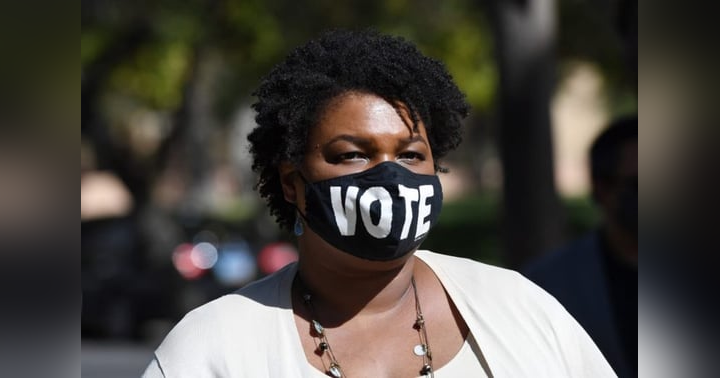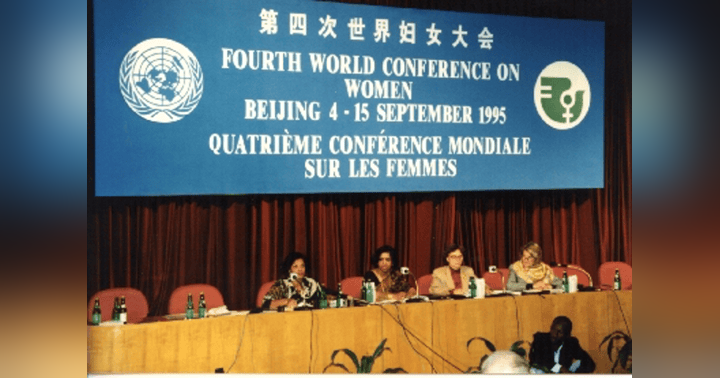Hispanic Heritage Month: Honoring Latino Contributions in the United States Through Policy and Legislation

Today marks the beginning of Hispanic Heritage Month, an official celebration of the contributions Hispanic and Latino Americans have made throughout United States history.
Beginning in 1968, the United States government has paid tribute to countless Latinos whose voices and cultures have positively influenced this nation. However, as Latinos face insurmountable challenges in 2020, from major loss of life to COVID-19 to extreme poverty in Puerto Rico to social and political conflict in Latin America, it is imperative that federal legislators and policymakers in the U.S. honor our community, not just with rhetoric, but with sound policy and legislation that will improve the quality of life for all Latinos in this country.
Hispanic Heritage Month begins on September 15th, the same date that five Central American countries – Costa Rica, El Salvador, Guatemala, Honduras, and Nicaragua – declared independence from Spanish colonial rule nearly 200 years ago. Mexico and Chile’s independence days shortly follow on the 16th and 18th. It is significant that U.S. leaders chose to honor Latino contributions to this nation during such critical dates in Latin American history. By paying tribute to Latin American countries’ struggle for freedom, the United States government recognizes that our values and our history are closely aligned with our neighbors in the Western Hemisphere. However, despite over 50 years of honoring Latino heritage, U.S. foreign and domestic policy has become increasingly harmful toward Latin Americans, Latino immigrants, and their descendants.
The irony behind the U.S. government honoring Central America’s independence, while maintaining Puerto Rico’s colonial status does not escape most Latinos. The United States acquired the island in 1898 after defeating Spain in the Spanish-American War. As a 2019 Foreign Affairs article astutely points out, “Puerto Rico has been neither granted sovereignty nor fully integrated into the United States.” Although Puerto Ricans are subject to U.S. federal laws and fight in American wars overseas, they do not enjoy the same political rights as Americans on the mainland. Puerto Ricans have no voting members in Congress and they receive no Electoral College votes in general presidential elections. This must change.
The fraught nature of the United States-Puerto Rico relationship was best exemplified in 2017 by the Trump Administration’s crude response to Hurricane Maria, which left at least 4,500 Puerto Ricans dead. The United States’ colonial legacy has not only shaped Puerto Rico’s politics, but its economy as well. Austerity measures, tax loopholes, and globalization have all had detrimental impacts to Puerto Rico’s economy. Today, the island has over $70 billion of debt and its poverty rate is twice as much as America’s poorest state, Mississippi. If the United States truly wants to honor Hispanic Americans, it can begin by offering Puerto Rico a serious opportunity for self-determination: statehood or independence.
Since 2016, the federal government’s rhetoric and policies toward Latinos and Latino immigrants have become increasingly hostile. The Trump Administration has exploited federal immigration law by criminalizing immigrants across the country and making it easier to separate asyulum-seekers and undocumented immigrants from their children, fill up for-profit detentions centers with Latino bodies, and deport Latino immigrants to their native countries without due process.
Policymakers cannot continue to celebrate the contributions of Latinos, many of whom are immigrants or children of immigrants, while simultaneously denying thousands entry into this country, systematically deporting Latinos who have laid roots here, and threatening to take away birthright citizenship for the Latinos born in the United States. In honor of Hispanic Heritage Month, the federal government should commit to following international law and giving Latino asylum-seekers due process, provide legal pathways to citizenship to the millions of undocumented immigrants who have already contributed to our society and economy, and immediately denounce dangerous anti-Latino rhetoric that have made our communities a target for hate crimes and domestic terrorism.
Hispanics and Latinos make up 18.5% of the total U.S. population, at 60.6 million people. They are the largest ethnic and racial minority group in the country. And yet, they are severely underrepresented in leadership positions in Washington D.C. and across the country. As of 2018, Latinos make up only 1.2% of all local, state, and federal elected officials. Adversely, Latinos are overrepresented in unemployment rates, COVID-19 deaths, and the U.S. prison population.
If federal lawmakers want to pay tribute to Hispanic and Latino Americans, they must begin by addressing the racial disparities in the U.S. economy, healthcare and criminal justice systems. They must develop policies and pass legislation that will bring an end to some of these injustices and create a brighter future for the Latino community. This includes increasing the federal minimum wage, guaranteeing paid sick leave, providing universal healthcare coverage, and committing to the decarceration of non-violent Latinos in prisons and detention centers across the country.
While it is important for the U.S. government to celebrate the contributions of influential Hispanic Americans every September 15- October 15, its praise must come with action. As Congress returns to session, lawmakers must demonstrate to Latinos how much they value our contributions by passing legislation that benefits our community. This includes, but is not limited to, passing a COVID-19 relief bill, granting Puerto Rico real political power, passing immigration reforms, and increasing Latino representation in senior leadership positions in government.
The United States has long been a home for Latin Americans fleeing war, violence, political repression, and poverty. Their loved ones left everything behind to pursue the American dream. This Hispanic Heritage Month, let’s take serious policy steps to make that dream a reality for the millions of Latinos who call the United States home.










